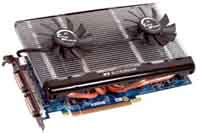 by congo » Sun Mar 27, 2005 1:57 pm
by congo » Sun Mar 27, 2005 1:57 pm
Motherboard manufacturers buy "chipsets" from chipset makers, then use them as the basis for the mobos.
Each chipset has a particular set of features that the producer hopes you will find attractive. It's up to the motherboard maker to incorporate those features and produce mainboards that will be popular and generate profits.
There are usually a few variations of mainboard features within a chipset version, but the performance specifications are usually similar. It's really up to you to choose a mainboard with the performance and features you want. This isn't an easy task, there is a lot to choose from and much to learn.
Basically, Chipset and CPU design are dependant on each other, so an AMD based Chipset won't work on an Intel CPU or vice versa.
A good mainboard is not chosen on price usually, the decision to purchase should be performance and feature based. Once that is established, you can choose between brands and variations to seek out a bargain.
****
64 bit computing has a rather important immediate role. It has allowed AMD to remain competitive (for the immediate future) with Intel's advanced technology.
Basically, AMD 64 bit CPU's made extremely fast Front Side Bus speeds possible on AMD platforms, which were, until recently, lagging behind the P4 based systems.
Both AMD and Intel are finding it difficult to increase the actual CPU speed, so they are both devising ways to increase performance through advanced technologies rather than just raw cpu speed.

Mainboard: Asus P5K-Premium, CPU=Intel E6850 @ x8x450fsb 3.6ghz, RAM: 4gb PC8500 Team Dark, Video: NV8800GT, HDD: 2x1Tb Samsung F3 RAID-0 + 1Tb F3, PSU: Antec 550 Basiq, OS: Win7x64, Display: 24&







 I don't think it will but I could do just fine with autopilots system FX-55 at 3.5 GhZ
I don't think it will but I could do just fine with autopilots system FX-55 at 3.5 GhZ 





 Mainboard: Asus P5K-Premium, CPU=Intel E6850 @ x8x450fsb 3.6ghz, RAM: 4gb PC8500 Team Dark, Video: NV8800GT, HDD: 2x1Tb Samsung F3 RAID-0 + 1Tb F3, PSU: Antec 550 Basiq, OS: Win7x64, Display: 24&
Mainboard: Asus P5K-Premium, CPU=Intel E6850 @ x8x450fsb 3.6ghz, RAM: 4gb PC8500 Team Dark, Video: NV8800GT, HDD: 2x1Tb Samsung F3 RAID-0 + 1Tb F3, PSU: Antec 550 Basiq, OS: Win7x64, Display: 24&
